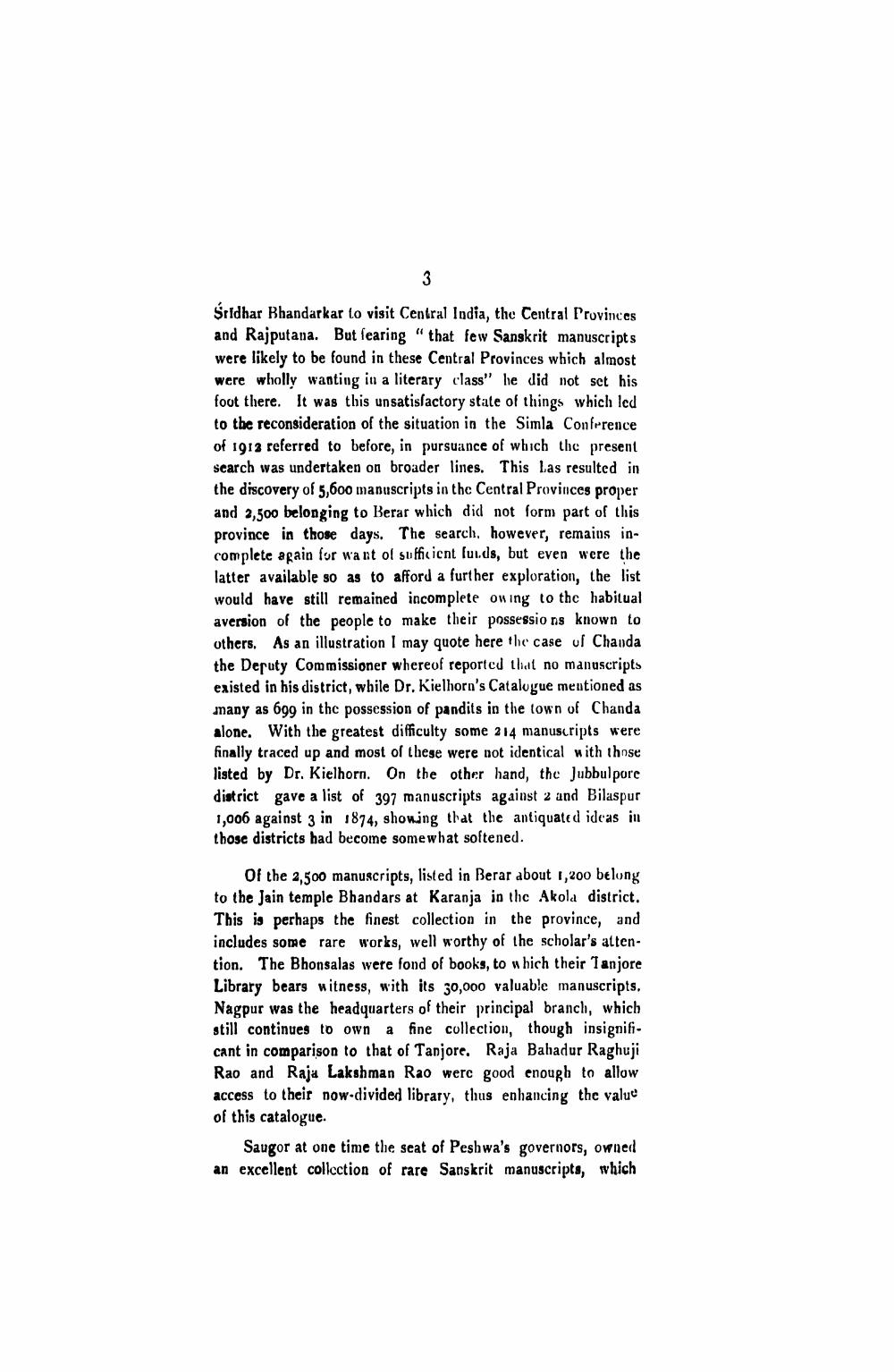________________
Sridhar Bhandarkar to visit Central India, the Central Provinces and Rajputana. But searing "that few Sanskrit manuscripts were likely to be found in these Central Provinces which almost were wholly wanting in a literary class" he did not set his foot there. It was this unsatisfactory state of things which lcd to the reconsideration of the situation in the Simla Conference of 1913 referred to before, in pursuance of which the present search was undertaken on broader lines. This Las resulted in the discovery of 5,600 manuscripts in the Central Provinces proper and 2,500 belonging to Berar which did not form part of this province in those days. The search, however, remains incomplete again for want ol sufficient luids, but even were the latter available so as to afford a further exploration, the list would have still remained incomplete owing to the habitual aversion of the people to make their possessions known to others. As an illustration I may quote here the case of Chanda the Deputy Commissioner whereof reported that no manuscripts existed in his district, while Dr. Kielhorn's Catalogue mentioned as many as 699 in the possession of pandits in the town of Chanda alone. With the greatest difficulty some 214 manuscripts were finally traced up and most of these were not identical with those listed by Dr. Kielhorn. On the other hand, the Jubbulpore district gave a list of 397 manuscripts against 2 and Bilaspur 1,006 against 3 in 1874, showing that the antiquated ideas in those districts had become somewhat softened.
Of the 2,500 manuscripts, listed in Berar about 1,200 belong to the Jain temple Bhandars at Karanja in the Akola district. This is perhaps the finest collection in the province, and includes some rare works, well worthy of the scholar's attention. The Bhonsalas were fond of books, to which their 1 anjore Library bears witness, with its 30,000 valuable manuscripts, Nagpur was the headquarters of their principal branch, which still continues to own a fine collection, though insignificant in comparison to that of Tanjore. Raja Bahadur Raghuji Rao and Raja Lakshman Rao were good enough to allow access to their now-divided library, thus enhancing the value of this catalogue.
Saugor at one time the seat of Peshwa's governors, owned an excellent collection of rare Sanskrit manuscripts, which




